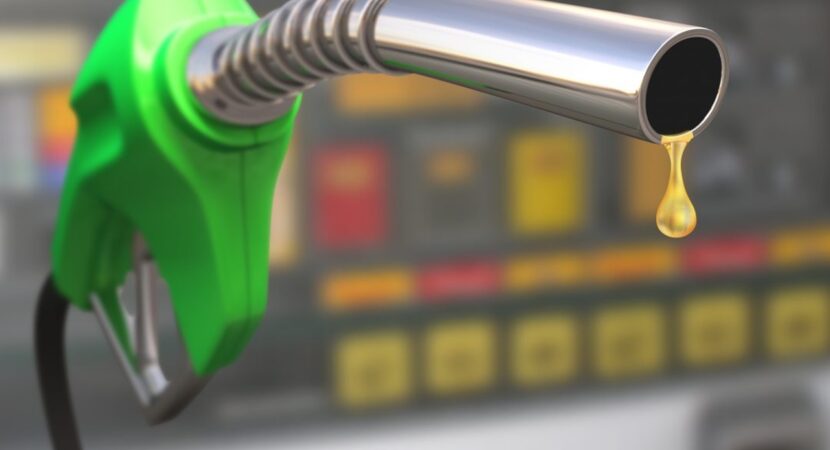
The increase in the mixture of biodiesel in diesel will increase costs for the transport of cargo and passengers and a consequent increase in product prices for Brazilians
The increase in the mixture of biodiesel in diesel has worried entities that represent more than 200 companies producing, distributing, importing, resellers and transporters, in addition to industries related to diesel consumption. According to them, there are serious problems in the quality standard of fuel sold today, which could lead to an increase in fuel prices, in addition to causing malfunctions in diesel engines.
Read also
- Soybean oil price plummets after Brazil reduces biodiesel mix in diesel
- Ethanol made from coconut shells, developed by a Brazilian university, could change the world of renewable energy
- Reduction of biodiesel in fuel could backfire and trigger industrial bankruptcy and unemployment
- Ethanol price reaches almost 5 reais at the pumps and filling up with gasoline becomes more advantageous in some Brazilian regions
- Direct sale of ethanol from plants is approved by the CCJ and promises to stimulate competition and curb the increase in gasoline prices at gas stations
The increase in the percentage of biodiesel mixed with diesel will increase the costs of transporting cargo and passengers and consequently increase the prices of products for Brazilians. It will also throw the country into a scenario of technological stagnation, impact the development of the automotive and equipment industry and compromise the provision of services.
The entities point out that, starting next year, new pollutant emission limits will come into effect in Brazil with the adoption of more modern vehicle technologies, for which there is no experience with high levels of biodiesel and which require a reduction in the content. and deep changes in the biodiesel specification.
The group reports that the recent increases in biodiesel in diesel have generated problems with crystallization, hygroscopy, low filterability and formation of biodiesel sludge, and, consequently, cause damage to machines and engines; decrease in service life; and low performance of equipment, in addition to increased maintenance costs and losses to the most diverse sectors of the economy and Brazilians.
How is Biodiesel produced?
In addition, high levels of biodiesel in diesel promote increased emissions of nitrogen oxides, hydrocarbons and carbon monoxide, with negative impacts that affect human health and the environment, in addition to increasing fuel consumption, generating even more emissions and additional costs, which are passed on to the entire population.
Not to mention the environmental impacts of more frequent disposal of hazardous contaminating products such as sludge, filters, mechanical parts, among others.
Demand for ethanol and gasoline plummets, while diesel consumption soars in Brazil
The crisis caused by the coronavirus, which led to mobility restrictions, in addition to the rise in fuel prices, caused the demand for ethanol and gasoline to plummet in Brazil in March. Diesel, on the other hand, despite having been suffering increases even with the PIS and Cofins taxes, frozen by the Government, had a completely opposite behavior, due to the sustained demand by sectors such as agriculture and transport.
The demand for diesel showed a behavior opposite to that of gasoline and ethanol, reaching 1,13 million barrels per day in March alone, which represents a significant increase of 125 thousand barrels per day in relation to the previous month. The above information comes from the S&P Global Platts Analytic Latin America Oil Report.
Reduction of biodiesel in fuel could backfire and trigger industrial bankruptcy and unemployment
The Government's measure to reduce biodiesel in the fuel could impact industries that expanded their operating capacities by relying on high demand, and therefore generate unemployment, since the biodiesel production chain employs more than 1,5 million people.
About 80% of the biodiesel consumed in the country is produced from pure and recovered soybean oil, whose production stimulates the production of soybean meal, the main input in the feed chain – which, in turn, feeds poultry, fish and pigs . The consequent impact on inflation will affect society as a whole, including the sectors that today intend to benefit from the reduction of fuel at the pump. That is, the intervention may result in a backfire.
An economic opinion carried out by GO Associados, by Gesner Oliveira, former president of the Administrative Council for Economic Defense (Cade) and Sabesp, points out that the reduction could lead to the bankruptcy of companies that made investments and increased their production capacity trusting the schedule of the National Energy Policy Council (CNPE), defined by resolution of October 2018, which was suddenly modified on Wednesday, 14, in the auction of the product that will be placed on the market in May and July. “It is a measure that goes against the grain of several aspects of public policy. The climate dome is very illustrative. At a time when there is a worldwide effort, which should be national, to reduce emissions, it makes no sense to interrupt a schedule that had already been established”, says Oliveira to VEJA.













Air Force F-16 fighters…
True friend, what they shot down were…
Air Force F-16 fighters…
I would like to know what planet you live on…
Air Force F-16 fighters…
Everything is fine, 100-year secrecy,…
Air Force F-16 fighters…
Well... It's flying scrap... Typical...
Air Force F-16 fighters…
Which genocide are you talking about? Than…
I'm a bicycle mechanic with 20 years of experience…
truck driver
I certainly wouldn’t have the money to buy it anyway…
Yes,bom.co.teudo.
I want to register
Good morning, I'm an industrial production technician...
I also remembered right away!
Serving army and very good eating picanha…